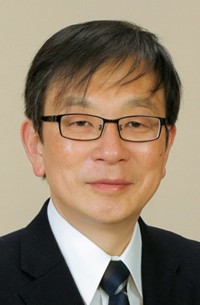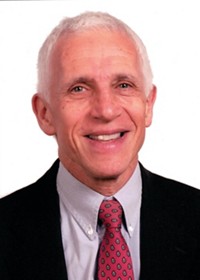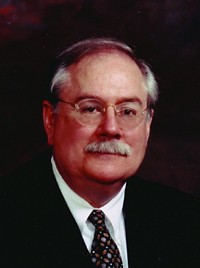Advertisement
Grab your lab coat. Let's get started
Welcome!
Welcome!
Create an account below to get 6 C&EN articles per month, receive newsletters and more - all free.
It seems this is your first time logging in online. Please enter the following information to continue.
As an ACS member you automatically get access to this site. All we need is few more details to create your reading experience.
Not you? Sign in with a different account.
Not you? Sign in with a different account.
ERROR 1
ERROR 1
ERROR 2
ERROR 2
ERROR 2
ERROR 2
ERROR 2
Password and Confirm password must match.
If you have an ACS member number, please enter it here so we can link this account to your membership. (optional)
ERROR 2
ACS values your privacy. By submitting your information, you are gaining access to C&EN and subscribing to our weekly newsletter. We use the information you provide to make your reading experience better, and we will never sell your data to third party members.
People
Daniel Koshland Wins Welch Award
UC Berkeley professor is honored for his work in biochemistry and medicine
by Sophie L. Rovner
May 8, 2006
| A version of this story appeared in
Volume 84, Issue 19
Daniel E. Koshland Jr., a professor of the graduate school in the molecular and cell biology department at the University of California, Berkeley, has won the 2006 Welch Award in Chemistry. Granted by Houston's Welch Foundation, which funds basic research in chemistry, the $300,000 award honors Koshland's "life-enhancing contributions to biochemistry and medical science."
Koshland, who is recognized for his work in enzymes and protein chemistry, is a "brilliant scientist, an enthusiastic educator, and an outstanding scientific leader," according to J. Evans Attwell, chairman of the foundation. "From designing new drug therapies to developing ways to help the environment, it is difficult to overestimate the importance of his discoveries and their potential to improve life."
Born in 1920, Koshland earned a B.S. in chemistry at UC Berkeley in 1941. After a stint on the Manhattan Project working on plutonium chemistry, he earned a Ph.D. in biochemistry at the University of Chicago in 1949. Koshland later worked at Brookhaven National Laboratory and Rockefeller University, then joined the faculty at UC Berkeley in 1965. His honors include the National Medal of Science and the Albert Lasker Award for Special Achievement in Medical Science. He served as editor of Science from 1985 to 1995.
Koshland attributes his success in part to good mentors. "I started work on the Manhattan Project under Glenn Seaborg and then got my Ph.D. under Frank Westheimer, both of whom were really superb individuals," he recalls. "Working for good people, you learn a lot."
It's also helpful to "work on important problems whose solutions mean a lot to the science or to the world," Koshland says. "It's probably equally difficult to solve an unimportant problem as it is to solve an important problem, so you might as well pick an important problem."






Join the conversation
Contact the reporter
Submit a Letter to the Editor for publication
Engage with us on Twitter